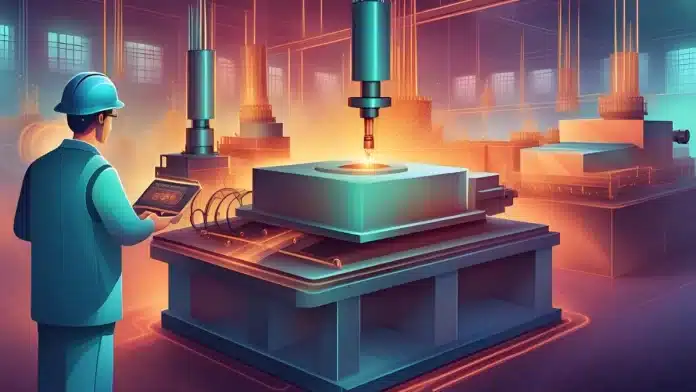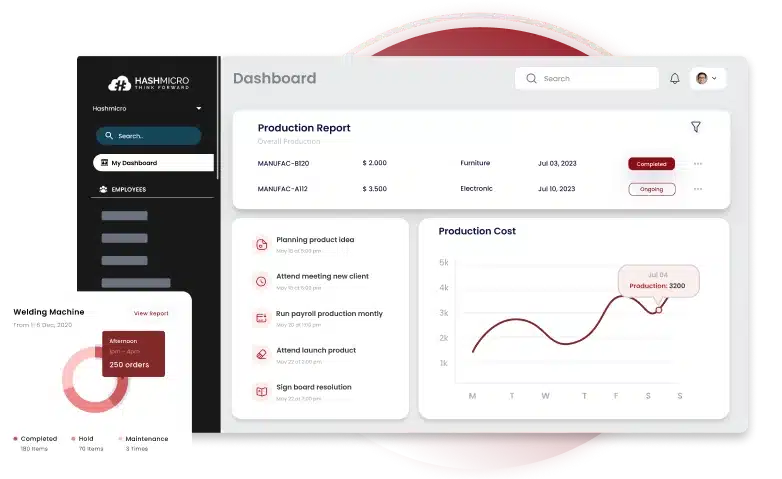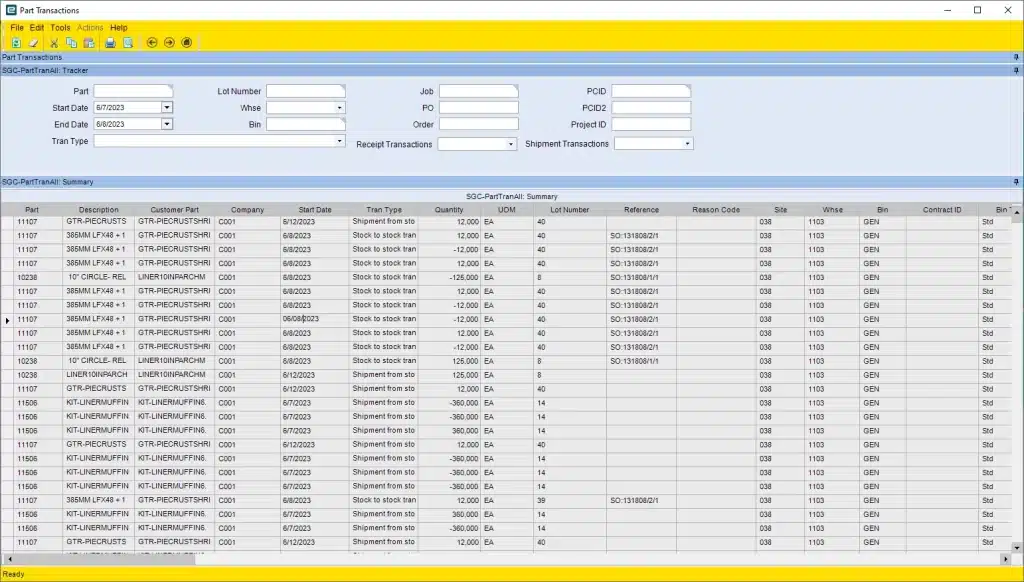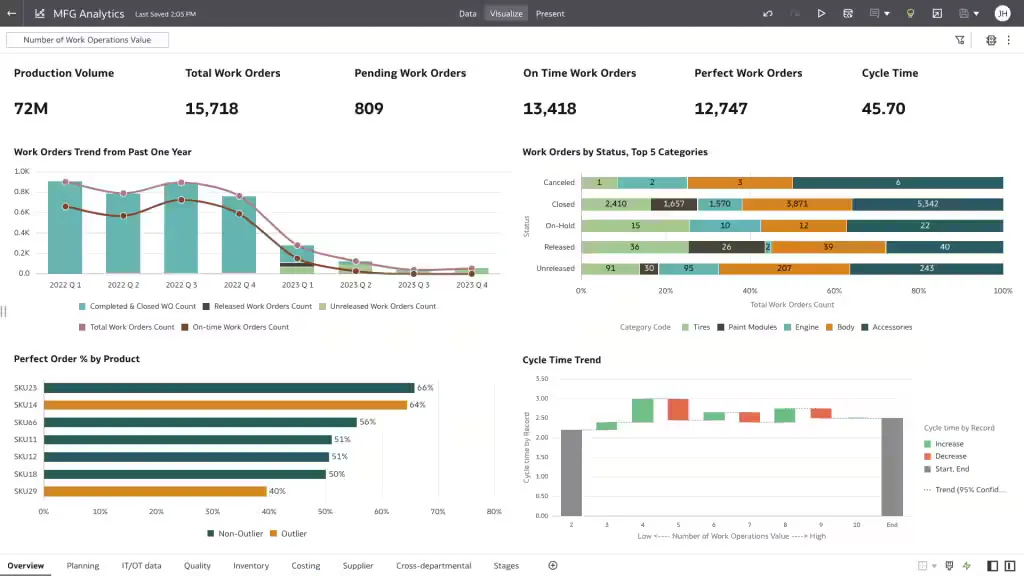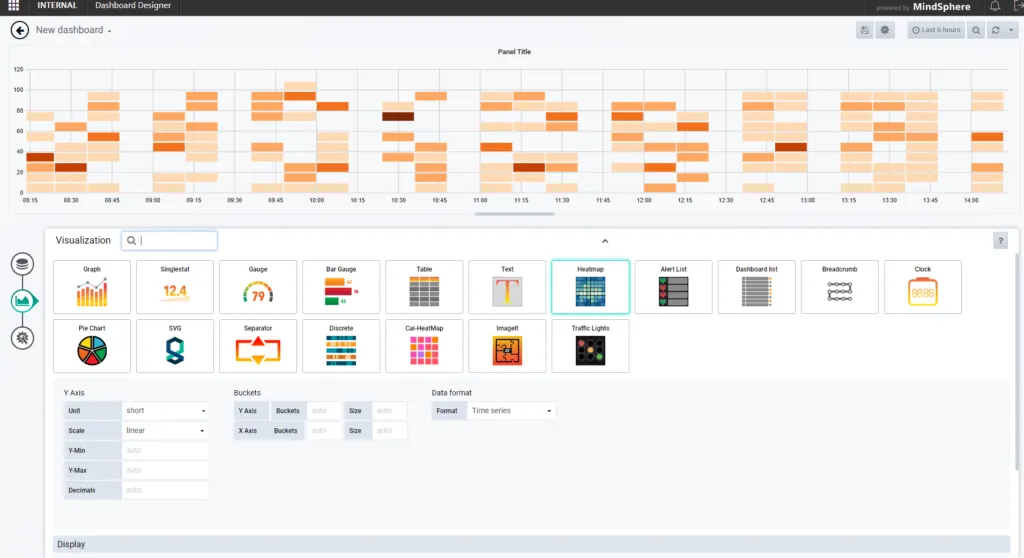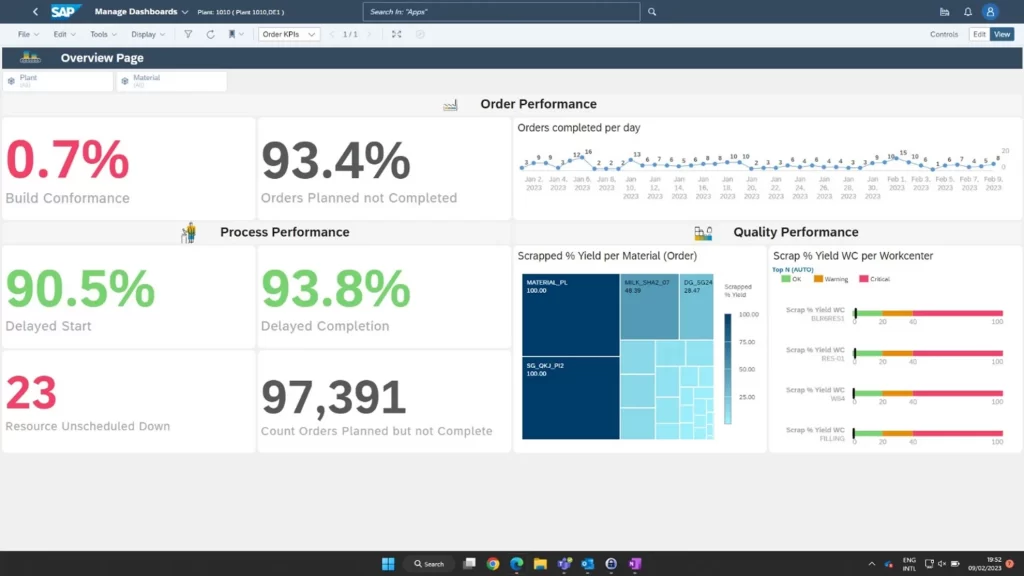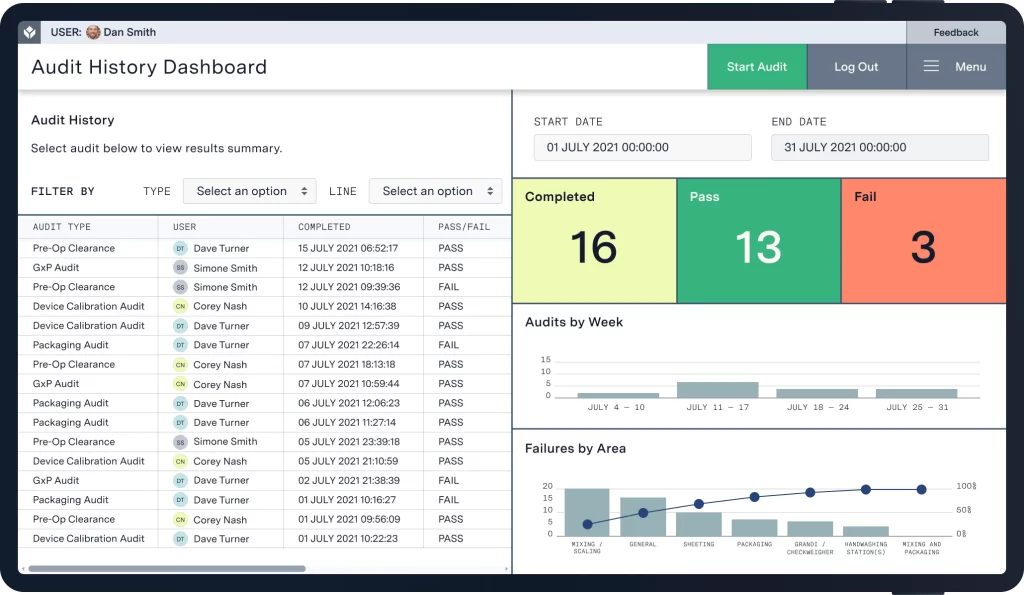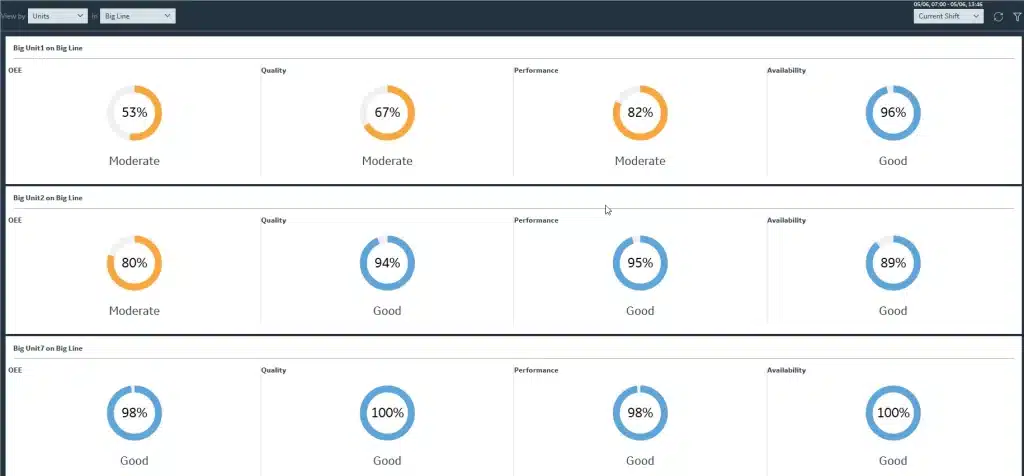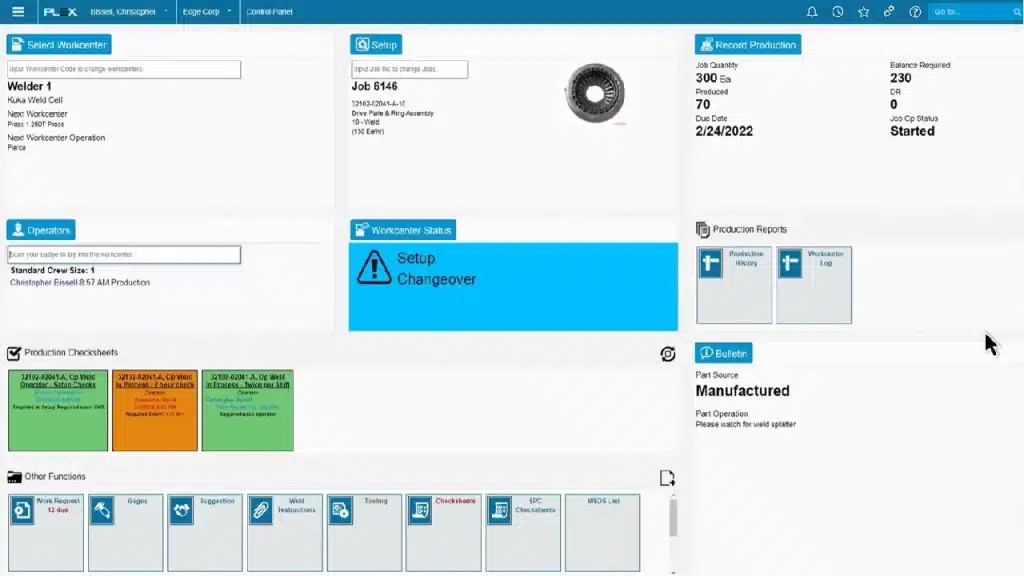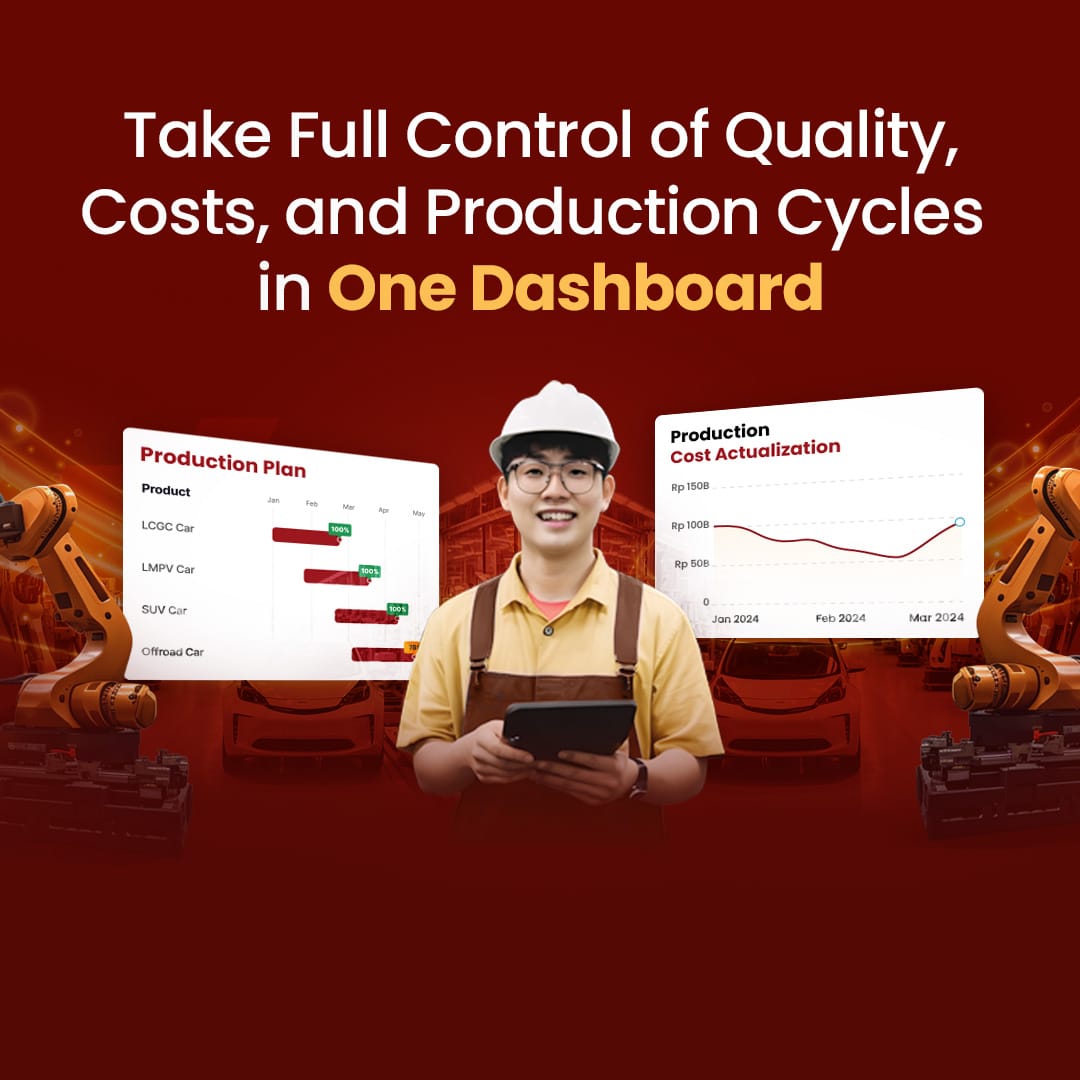Do you know that according to Worldmetrics, the right Manufacturing Execution System (MES) can deliver impressive benefits, including a 17.2% reduction in Overall Equipment Effectiveness (OEE), a 22% reduction in manufacturing cycle time, and a 10-20% reduction in total manufacturing costs?
These are the advantages companies can reap using MES, but how do you ensure you choose the right one? With so many MES options in the market, selecting the right one can be challenging.
Making the wrong choice can result in integration issues, operational inefficiencies, and long-term financial setbacks. Given the stakes, manufacturers must evaluate their options carefully.
This article provides a comprehensive list of the 12 top MES systems tailored for Singaporean businesses to assist in this critical decision-making process. By exploring these options, manufacturers can better implement a system that maximizes operational efficiency and cost savings.
Key Takeaways
|
Table of Content:
Table of Content

Understanding Manufacturing Execution System and its Benefits
A manufacturing execution system (MES) is a solution to oversee the entire manufacturing process, from raw materials to finished products. MES provides critical data integration between enterprise resource planning (ERP) and process control systems to optimise factory efficiency and production.
As a key component of digital transformation in manufacturing, an MES enhances productivity and profitability by making manufacturing data-driven regardless of the operation’s size. Moreover, in many industries, traceability and compliance are critical to the success of the digital transformation.
This is especially beneficial for regulated industries like pharmaceuticals, food and beverage, medical devices, aerospace, defense, and biotechnology, which require strict traceability and compliance.
Production execution systems track extensive data, which offers real-time insights to boost efficiency and reduce costs. Key benefits include:
- Improved Quality Control: Real-time quality data allows immediate production halts to address issues, reducing waste and rework.
- Increased Uptime: MES maximizes product flow and equipment utilization by balancing resources and integrating scheduling with maintenance, enhancing overall equipment effectiveness (OEE).
- Reduced Inventory: MES updates inventory records in real-time, minimizing excess inventory and work-in-progress (WIP), thus saving manufacturing and storage costs.
- Paperless Shop Floor: Eliminating paperwork reduces human error and ensures immediate data availability for decision-makers.
- Enhanced Product Tracking and History: MES tracks the entire production cycle, ensuring regulatory compliance and facilitating product recalls if necessary.
Core Features of Manufacturing Execution System Software
In 1997, the Manufacturing Enterprise Solutions Association International (MESA) outlined 11 core functions for manufacturing execution systems (MES). These functions have evolved but remain fundamental to operating various types of plants and are crucial to a modern manufacturing execution system. Here’s a breakdown:
- Resource Allocation and Status: Utilize real-time data to monitor and analyze the status of resources, such as machines, materials, and labor, allowing for necessary adjustments in allocation.
- Operations/Detailed Scheduling: Enhance performance by scheduling, timing, and sequencing activities based on priorities and resource capacity.
- Dispatching Production Units: Oversee production data flow in real-time to make quick, informed adjustments in dispatching.
- Document Control: Manage and distribute documents, including work instructions, drawings, SOPs, and batch records, ensuring they are accessible and editable.
- Data Collection and Acquisition: Track and gather real-time data on processes, materials, and operations to make better decisions and improve efficiency.
- Labor Management: Monitor worker schedules, qualifications, and authorizations to optimize labor management with minimal time and resource investment from management.
- Quality Management: Track quality deviations and exceptions to enhance quality control management and documentation.
- Process Management: Oversee the production process from order release to finished goods, identifying bottlenecks and quality-impacting points while ensuring full production traceability.
- Maintenance Management: Use MES data to detect potential equipment issues before they occur and adjust maintenance schedules for equipment, tools, and machines to reduce downtime and boost efficiency.
- Product Tracking: Monitor product progress to make informed decisions. This comprehensive product history is particularly valuable for manufacturers needing to comply with regulations.
- Performance Analysis: Compare actual results with goals to identify strengths and weaknesses in the overall process, using this data to enhance system efficiency.
12 Best Manufacturing Execution Systems in Singapore
Selecting the right MES in Singapore can be overwhelming, with numerous vendors and varying features. To simplify your decision-making process, we’ve compiled a list of the 12 top MES systems recommendations, highlighting their features, advantages, and disadvantages.
1. HashMicro Manufacturing Execution System
HashMicro’s Manufacturing Execution System (MES) is a robust MES Singapore that offers real-time production monitoring, quality management, and advanced scheduling. In today’s competitive industry, this software integrates with ERP systems to ensure traceability and compliance through comprehensive production management.
Customers can experience firsthand how HashMicro’s Manufacturing Execution System (MES) can transform their business by trying the free demo. They will discover the seamless integration of real-time monitoring and cloud-based accessibility, and see why over 1,750 clients trust HashMicro to streamline their operations and boost productivity.
Its real-time monitoring and control capabilities ensure high standards of quality and efficiency, making it an indispensable asset for businesses. Additionally, the software’s cloud-based nature makes it accessible from anywhere and easier to manage multiple production sites.
HashMicro’s best Manufacturing Execution System offers a comprehensive suite of features to enhance manufacturing processes. This top MES software ensures every product meets stringent quality standards, from real-time quality monitoring and automated quality checks to defect tracking and compliance management.
Why we choose this software: HashMicro excels in optimizing MES by enhancing production efficiency, accelerating workflow processes, and reducing operational costs. It supports advanced production scheduling and real-time process tracking, which are essential for streamlining manufacturing operations in Singapore’s competitive market.
Features:
- Kiosk Mode: This feature allows employees to access and operate the manufacturing system via a dedicated terminal, simplifying and streamlining shop floor operations.
- Secret BoM: This feature ensures the confidentiality of the Bill of Materials, protecting sensitive product information from unauthorized access.
- Finished Goods Production Simulation: This feature enables manufacturers to simulate the production process of finished goods, helping to identify potential issues and optimize production planning.
- Real-Time Manufacturing Monitoring: Provides enhanced visibility and instantaneous feedback on production activities.
- MES and ERP Integration: Integrates smoothly with ERP systems, streamlining data flow and improving resource planning.
- Shop Floor Control: Empowers production managers to control and adapt manufacturing operations directly.
- Production Scheduling: Uses up-to-the-minute data to precisely manage job orders and track progress.
- Integration Capabilities: HashMicro’s solutions can be easily integrated with third-party applications and existing systems, enhancing functionality and ensuring a smooth transition.
| Pros | Cons |
|
|
2. Kinetic Production Execution System
Kinetic by Epicor is a powerful manufacturing execution system that offers advanced scheduling and planning, real-time data analytics, and quality management. This MES is ideal for businesses looking to scale, providing robust functionality and strong reporting tools.
Why we choose this software: Kinetic manufacturing execution system software excels in enhancing production efficiency and supports smart manufacturing systems. For Singaporean businesses, this means improved operational control and faster response times to market demands, crucial in a competitive market like Singapore’s.
Features:
- Advanced scheduling and planning
- Real-time data analytics
- Quality management
- Supply chain management
| Pros | Cons |
|
|
3. Oracle Cloud Manufacturing
Oracle Cloud Manufacturing is a cloud-based mobile manufacturing execution system that integrates supply chain management, real-time production tracking, and predictive maintenance.
Why we chose this software: Oracle’s best manufacturing execution system offers comprehensive solutions that enhance production efficiency and quality management, particularly for large enterprises in Singapore. This software helps manufacturers optimize production processes, ensure compliance, and adapt swiftly to market changes.
Features:
- Integrated supply chain management
- Real-time production tracking
- Predictive maintenance
- Quality management
| Pros | Cons |
|
|
4. Siemens Opcenter Execution
Siemens Opcenter Execution is a versatile manufacturing execution system that provides real-time production visibility, quality and compliance management, and advanced analytics. This MES integrates seamlessly with IoT devices.
Why we choose this software: Siemens MES software delivers comprehensive production scheduling and quality management solutions. For businesses in Singapore, it enhances process visibility and efficiency, aiding in the swift adaptation to local industry standards and regulatory requirements.
Features:
- Real-time production visibility
- Quality and compliance management
- Advanced analytics
- Integration with IoT devices
| Pros | Cons |
|
|
5. SAP Manufacturing Execution
SAP manufacturing execution system software is a robust MES solution that offers real-time production monitoring, quality management, and advanced analytics. This manufacturing execution software integrates with SAP ERP, providing a comprehensive production management system for manufacturers.
Why we choose this software: SAP Manufacturing Execution provides end-to-end production tracking and real-time insights. Singaporean manufacturers benefit from its integration with other SAP solutions, allowing for efficient production management and alignment with the high standards of Singapore’s manufacturing sector.
Features:
- Real-time production monitoring
- Quality management
- Advanced analytics
- Integration with SAP ERP
| Pros | Cons |
|
|
6. Infor MES
Infor MES is a user-friendly manufacturing execution system that provides real-time production tracking, quality management, and advanced scheduling. This MES offers strong customer support and good integration capabilities.
Why we chose this software: Infor MES Singapore delivers flexible production scheduling and process optimization tools. This software supports manufacturers by streamlining operations and improving production visibility, essential for maintaining competitiveness in the dynamic local market.
Features:
- Real-time production tracking
- Quality management
- Advanced scheduling
- Integration with ERP systems
| Pros | Cons |
|
|
7. Tulip Production Management System
Tulip is an innovative manufacturing execution system software that enables no-code app development, real-time production monitoring, and quality control. This manufacturing execution system offers highly customizable manufacturing execution system solutions that enhance production efficiency and flexibility.
Why we chose this software: Tulip Production Management System offers user-friendly interfaces and real-time production insights. Singaporean companies benefit from its ease of use and adaptability, which help them rapidly meet the evolving demands of Singapore’s high-tech manufacturing industry.
Features:
- No-code app development
- Real-time production monitoring
- Quality control
- Integration with IoT devices
| Pros | Cons |
|
|
8. Critical Manufacturing MES
Critical Manufacturing MES is a flexible manufacturing execution system that provides real-time production monitoring and advanced analytics. Its high flexibility and analytics capabilities deliver comprehensive manufacturing execution system solutions for manufacturers.
Why we chose this software: Critical Manufacturing MES Singapore provides advanced features for production control and data analytics. It ensures high levels of operational efficiency and regulatory compliance, which are essential for thriving in Singapore’s sophisticated manufacturing environment.
Features:
- Real-time production monitoring
- Quality management
- Advanced analytics
- Integration with IoT devices
| Pros | Cons |
|
|
9. Epicor Advanced MES
Epicor manufacturing execution system software is a powerful tool designed to revolutionize the manufacturing industry in Singapore. Trusted by many clients from the manufacturing sector, Epicor Advanced MES streamlines operations and enhances productivity.
Why we choose this software: Epicor Advanced MES Singapore focuses on enhancing production efficiency through detailed scheduling and real-time data. Singaporean manufacturers gain from its comprehensive features that streamline operations and help meet the demands of the competitive local market.
Features:
- Real-time production monitoring
- Quality management
- Advanced scheduling
- Integration with ERP systems
| Pros | Cons |
|
|
10. MasterControl Production Execution System
MasterControl is one of the best manufacturing execution systems. It is a specialized manufacturing execution system that focuses on quality management, compliance tracking, and document control. This MES provides real-time production monitoring, making it a valuable production management system for regulated industries.
Why we choose this software: MasterControl Production Execution System offers robust compliance management and production control features. In Singapore, it helps manufacturers ensure adherence to stringent industry standards while optimizing production processes for improved efficiency.
Features:
- Quality management
- Compliance tracking
- Document control
- Real-time production monitoring
| Pros | Cons |
|
|
11. GE Digital Plant Application
GE Digital Plant Application is a manufacturing execution system that provides quality management and advanced analytics. It offers high flexibility and strong analytics, making it ideal for industries needing precise production control and extensive data analysis.
Why we chose this software: GE Digital Plant Application provides real-time monitoring and predictive maintenance tools. For Singaporean manufacturers, this software enhances production efficiency and minimizes downtime, crucial for maintaining operational excellence in Singapore’s fast-paced industry.
Features:
- Real-time production monitoring
- Quality management
- Advanced analytics
- Integration with IoT devices
| Pros | Cons |
|
|
12. Plex Smart Manufacturing
Plex Smart Manufacturing is a versatile manufacturing execution system (MES) that provides real-time production monitoring, quality management, and advanced analytics. This MES integrates with ERP systems, supporting efficient production workflows.
Why we choose this software: Plex Smart Manufacturing delivers comprehensive production management with real-time data insights and reporting tools. Singaporean businesses benefit from their ability to streamline operations and adapt to local industry demands, supporting growth and competitiveness in Singapore’s vibrant market.
Features:
- Real-time production monitoring
- Quality management
- Advanced analytics
- Integration with ERP systems
| Pros | Cons |
|
|
What to Consider Before Choosing a Manufacturing Execution System
Selecting the right manufacturing execution system (MES) is crucial for manufacturers in Singapore, aiming to enhance their production efficiency and maintain a competitive edge. Here are some key considerations to help you choose the best MES for your needs:
- Industry-Specific Requirements: Different industries have unique needs. For instance, regulated sectors like pharmaceuticals, food and beverage, and medical devices require robust compliance and traceability features. Ensure the MES you choose can handle your industry’s specific regulatory requirements.
- Integration Capabilities: The MES should seamlessly integrate with your existing enterprise resource planning (ERP) systems and other software solutions. This integration is vital for creating a unified ecosystem that enhances data flow and operational efficiency.
- Real-Time Data and Analytics: Look for an MES that offers real-time data tracking and advanced analytics. This feature is essential for making informed decisions quickly, optimizing production processes, and identifying areas for improvement.
- Scalability and Flexibility: As your business grows, your MES should be able to scale with you. Choose a system that offers flexibility in terms of adding new functionalities or accommodating increased production volumes without significant disruptions.
- User-Friendly Interface: A user-friendly interface ensures that your team can quickly adapt to the new system, reducing the learning curve and minimizing disruptions to your operations. Look for an manufacturing execution system with intuitive dashboards and easy-to-navigate features.
- Support and Training: Reliable customer support and comprehensive training programs are essential for a smooth implementation and ongoing use of the MES. Ensure the vendor provides adequate support to address any issues that may arise.
By considering these factors, Singaporean manufacturers can select an MES that meets their current needs and supports future growth and innovation. This strategic choice will enhance operational efficiency, ensure compliance, and drive overall business success.
MES and ERP Integration
In modern manufacturing, MES and ERP systems work together to provide operational clarity that neither can achieve alone.
ERP systems are designed to create and manage plant schedules, covering production, material usage, delivery, and shipping while gathering comprehensive business data. In contrast, manufacturing execution systems (MES) focus on managing and monitoring manufacturing operations, providing real-time reports on production line activities.
When combined, ERP and MES form an integrated ecosystem that offers a holistic view of finance, procurement, supply chain management, manufacturing logistics, and more. This synergy enhances agility and provides robust data, improving forecasting for sales, asset utilization, and manufacturing management.
To summarize, ERP systems help determine what products to manufacture, while MES integrates ERP data with plant floor information to optimize how those products are produced, leading to reduced waste and increased profitability.
If you are still confused about the difference between MES and ERP, you can head to our article that extensively discusses MES vs ERP, including their similarities and differences.
Conclusion
Selecting the best manufacturing execution system software is crucial for Singaporean manufacturers aiming to enhance efficiency. Businesses can find an MES that supports their growth and unique requirements by considering industry-specific needs, real-time data tracking, and scalability.
Given these criteria, HashMicro’s MES stands out as an exceptional choice. It offers robust industry-specific features, seamless integration with existing ERP systems, real-time data insights, and scalable solutions to accommodate growing business demands.
To experience the benefits firsthand, we encourage you to access HashMicro’s free demo and discover how it can transform your manufacturing operations.
FAQ about Manufacturing Execution System
-
What is MES and PLC?
A PLC (Programmable Logic Controller) is a digital computer used to automate industrial processes, like controlling machinery on factory assembly lines. It’s built for real-time use in tough industrial settings. In contrast, an MES (Manufacturing Execution System) is a control system that manages and monitors factory floor operations.
-
What is the principle of MES?
Practically, an MES follows the ISA-95 standard, which outlines activities to create interfaces that connect control systems. This ensures smooth communication across different organizational levels.
-
What is the difference between MES and MRP?
MRP (Material Requirements Planning) components make sure materials are available when needed, helping to minimize inventory costs and waste. MES components, on the other hand, optimize production schedules and labor use based on real-time data. This improves efficiency and productivity, reducing lead times and costs.
-
What is the difference between MES and ERP systems?
ERP and MES systems fulfill distinct functions in manufacturing environments. While an ERP system primarily handles scheduling and data analysis, an MES focuses on managing and optimizing real-time shop-floor operations and production processes.
-
How MES can be integrated with ERP?
It acts as a central hub for coordinating company-wide operations and streamlining information exchange among departments. By integrating with ERP, the MES enables the sharing of production data, planning details, and resource information.



